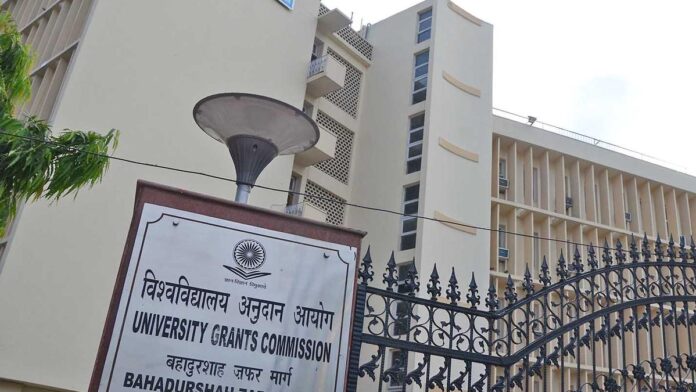Karnataka’s Higher Education Department is re-evaluating the University Grants Commission’s (UGC) 2022 guidelines that allow students to pursue two academic programmes simultaneously. This scheme, introduced as part of the National Education Policy (NEP) 2020, aims to offer students greater flexibility and opportunities in education.
However, M.C. Sudhakar, the state’s Higher Education Minister, has criticized the guidelines, calling them “unscientific and unrealistic.” The matter will be reviewed by the State Education Policy (SEP) Commission, chaired by Sukhdev Thorat, whose final report is expected in February 2025.
UGC’s Push for Implementation
The UGC has been persistent in urging Karnataka to adopt the dual programme guidelines. Despite multiple reminders, the state government has yet to act, citing concerns over the practicality of the scheme. A recent reminder from the UGC, dated November 20, highlighted challenges faced by students in enrolling for two programmes simultaneously.
The main issue, according to the UGC, is the insistence by higher educational institutions (HEIs) on migration certificates or school leaving certificates, which hinders students from registering for a second programme. This contradicts the very intent of the UGC guidelines to provide academic flexibility and broaden learning opportunities.
State’s Stand on NEP 2020
Karnataka’s current Congress government has also rolled back other initiatives under NEP 2020, including the four-year honours degree programme implemented by the previous BJP government. The decision not to implement the dual programme scheme aligns with this broader rejection of NEP reforms.
The state government’s approach reflects skepticism about the feasibility of running two simultaneous academic courses, with concerns over the strain on students and institutional resources.
Implications for Higher Education
While the dual academic programme policy is a progressive step under NEP 2020, its implementation has faced resistance in several states. Advocates argue that such flexibility can enhance multidisciplinary education and employability, while critics point to logistical challenges and concerns over academic rigor.
Karnataka’s decision to refer the matter to the SEP Commission signals the state’s intent to evaluate the scheme comprehensively. The findings of the Thorat Commission in February 2025 will likely play a crucial role in shaping the future of dual academic programmes in the state.
Balancing Flexibility and Feasibility
The debate around dual academic courses highlights the need for a balanced approach. While the UGC aims to expand educational opportunities, states like Karnataka emphasize the importance of practicality and resource management.
As the SEP Commission reviews the guidelines, the outcome could set a precedent for other states grappling with similar concerns about NEP 2020 reforms.











